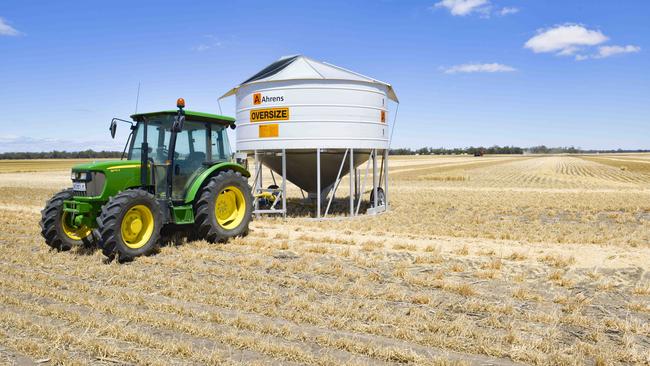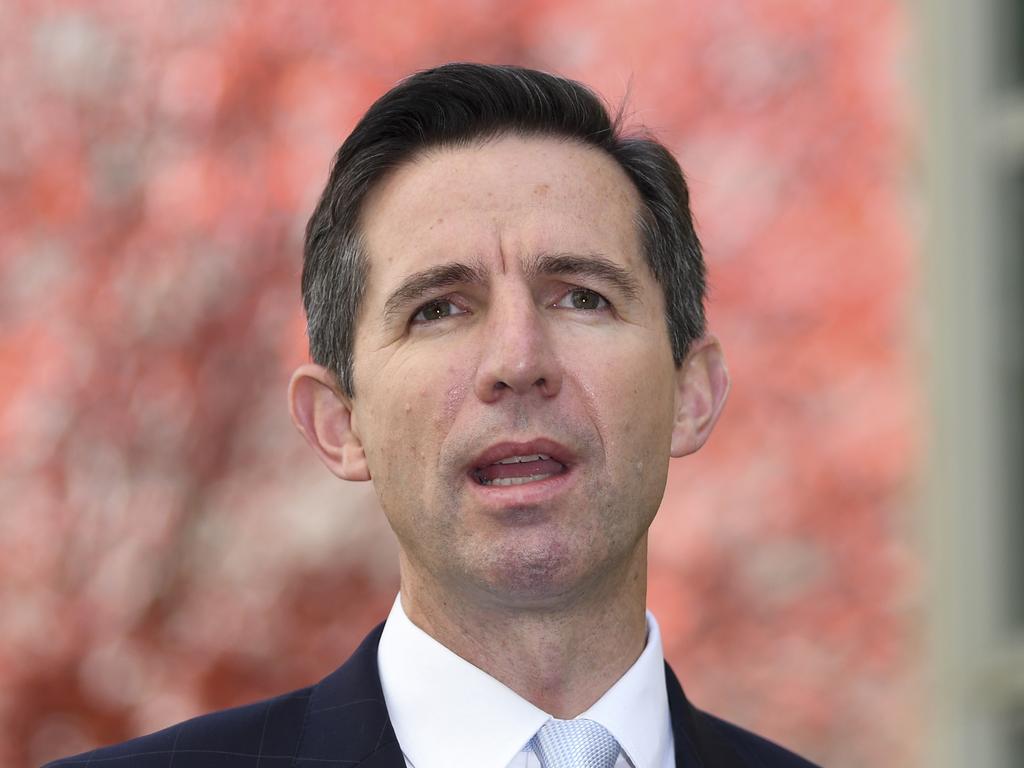
But given clear evidence that China is deeply unhappy with Australia’s aggressive calls for an inquiry, in a way that it sees as Australia teaming up with the Trump administration to point the blame at China, the foreign exchange markets are making up their own minds on the prospects of Australia being on the brink of a serious deterioration of ties with our largest trading partner.
Birmingham was quick to reject suggestions Australia is entering a trade war with China. But others, who have stood by and watched the political relationship worsen recently, are worried about this.
The threat of tariffs on Australian barley exports to China has hung over the industry since China’s Ministry of Commerce (MOFCOM) announced it was launching an anti-dumping investigation in November 2018. But as one expert noted this week, the amount of tariffs recommended by MOFCOM, of about 80 per cent, were notably higher than the amount initially requested by the Chinese barley industry.
The move by China’s customs officials this week to find fault with the labelling from four Australian meat plants, major exporters to China, takes the issue to another level, coming so quickly on the announcement by MOFCOM on barley and the clear warnings by China’s ambassador to Australia, the very experienced Cheng Jingye, that Australia’s exports of beef and wine could be hit if Chinese consumers did not like Australia’s call for the COVID-19 inquiry.
Those involved in the $250bn China-Australian trade are now worried about its future — a future that recent governments appear to have taken for granted, assuming the economic prosperity that Australia has enjoyed as a result of the relationship is a given that will continue indefinitely.
Economic security
In discussions of “national security” in recent years, the fact that economic security is a critical part of national security does not seem to have got a look in among China hawks — again a reflection of the view that our trade ties with China will be unaffected by any political stance of the government.
At a time when Australia’s social fabric is coming under severe pressure due to the economic shutdown, with the prospect of a more serious recession ahead, picking a diplomatic fight with one’s major trading partner may not turn out to have been such a great idea.
Australia’s relations with China have been on a downward course since the Turnbull administration announced plans for tighter foreign influence laws and the decisions including banning Chinese telecommunications giant Huawei in 2018 from supplying equipment for the 5G network.
Wanting to know the origins of COVID-19 is completely understandable. Australia does, as does every other country in the world.
But for some reason Australia, which has had fewer than 100 deaths from the pandemic, has chosen to get out in front of calls for the inquiry ahead of others.
When it comes to the highly sensitive issue of China’s role in the pandemic, China now sees the Morrison government as a wind-up doll doing the bidding of the Trump administration. China’s ambassador clearly set out his concerns in his interview two weeks ago, a transcript of which was posted on the embassy website. He said: “Frankly speaking, the reason we are opposed to this idea, this proposition from the Australian side, (is because) it is politically motivated. It’s a kind of pandering to the assertions that were made by some forces in Washington over a certain period of time.
Attempting to blame China
“Some guys are attempting to blame China for their own problems and deflect the attention.
“The proposition is obviously teaming up with those forces in Washington to launch a political campaign against China.”
His comments were overshadowed by a war of words about whether he was “threatening” Australia with economic retaliation or not. What we are seeing now is that the ambassador’s warnings could be coming true.
If anyone doubts what could happen — with potentially more of Australia’s exports to China to comer under pressure — one only need go to the writings of China’s nationalistic Global Times.
Our diplomats hate journalists quoting the Global Times, but it is the Chinese embassy that now posts its comments on its website — using the Times to make its own point. The Times, which does seek to reflect a Chinese nationalist point of view, has traditionally been quick to respond to perceived slights against China overseas.
In recent times, the paper has written many articles spelling out its views that China is angry at Australia’s stance and other aspects of its trade with China could well be hit. In an editorial on Monday in its English language site, the newspaper warned that tariffs on the $600m import of Australian barley to China could become the “start to a series of retaliatory measures against Australia”.
The editorial, written just hours before the news on Tuesday that China was suspending the import licences of four Australian meat processing plants, warned that relations between Australia and China were moving towards their “lowest point in decades”.
Headed “Chinese businesses need to watch out for risks from Australia”, it accuses the Morrison government of “joining in on the China blame game” over the origins of the COVID-19 pandemic.
Economic repercussions
“If China-US ties continue to deteriorate, the uncertainty surrounding China-Australian relations will also deteriorate,” it warns. “Such uncertainty will inevitably lead to economic repercussions.”
The Chinese government, a master at using non-tariff issues to signal its unhappiness with foreign trading partners, has dismissed suggestions that its proposed tariffs on Australian barley imports are politically motivated, arguing that they are part of the normal trade dispute handling process.
But the commentary in the Global Times is evidence of a much angrier view. In an article on Sunday, the paper said Australia could face “much bigger problems” than its current concerns over its $600m barley trade with China “if it continues unfriendly action against China”. It warned “deteriorating ties could result in severe damage to bilateral trade between Australia and China”.
Titled “Tariffs not the only problem China may face: Chinese experts”, the articles said “ties between China and Australia have deteriorated in recent years, especially since Australia followed the US move in trying to blame China for the pandemic and launched political attacks on China”. It quoted Jiang Yong, an expert at the China Institutes of Contemporary International Relations in Beijing, as warning that “China has more measures than tariffs to respond to Australia’s unfriendly actions”.
Jiang noted that most of Australia’s exports to China were “bulk commodities such as agricultural products which are highly replaceable”. He said: “Amid the worldwide economic downturn caused by the COVID-19 pandemic, China could easily find some alternatives.”
Sadly for Australia’s increasing ranks of unemployed, it may well do just that.








Federal Trade Minister Simon Birmingham may genuinely believe, as he said on Tuesday, that the flare-up on Australia’s barley and meat exports to China this week has nothing to do with his government’s enthusiastic calls for an inquiry into the source of the COVID-19 pandemic.